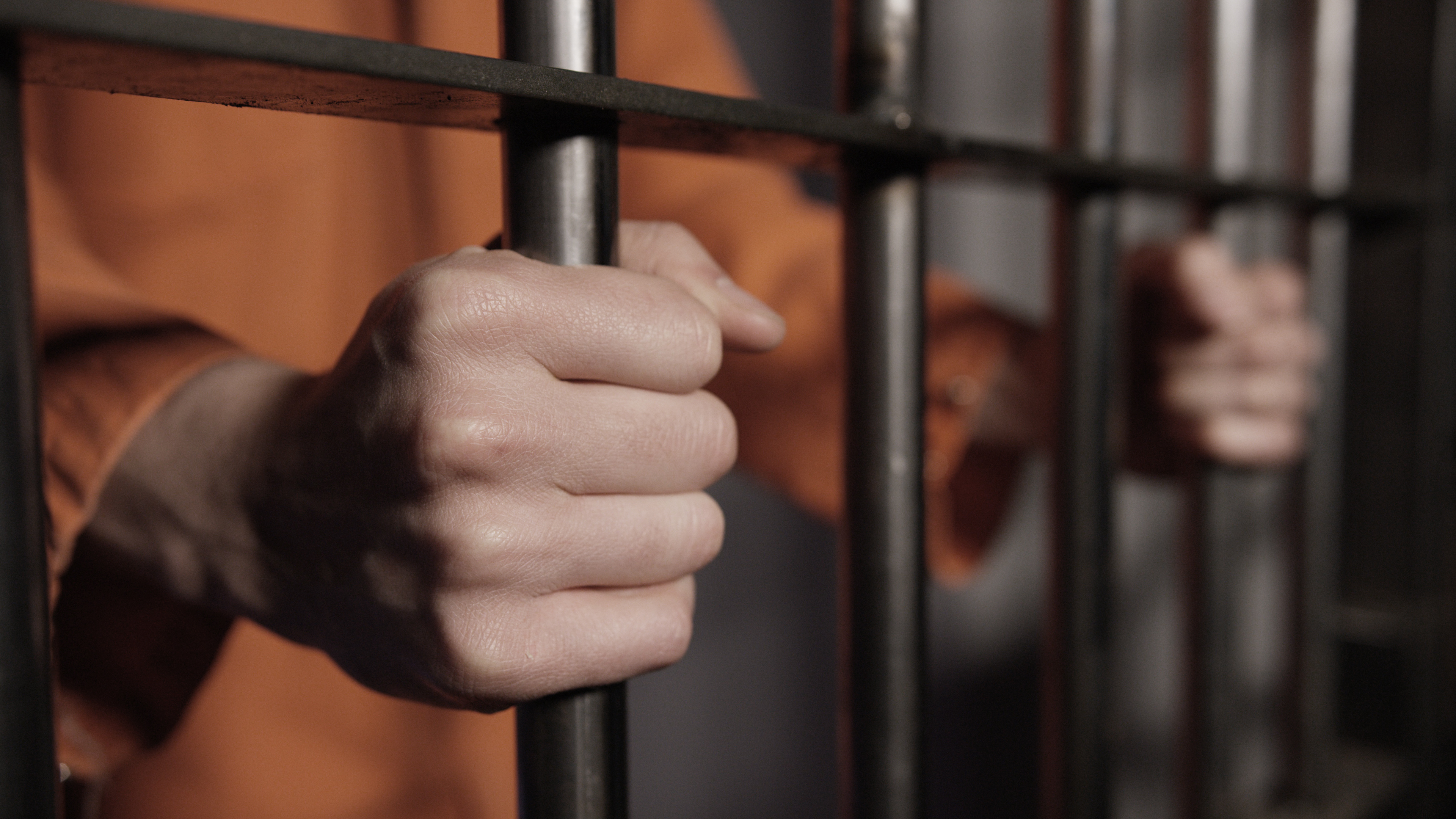What Penalty can I Get for a Commonwealth Offence?
Here is a list of the types of penalties that an Australian Court can give for Commonwealth offences under Part 1B of the Crimes Act 1914 (Cth).
The court can impose any one of the below penalties for a commonwealth offence.
The type of penalty the Judge or Magistrate chooses in your case will depend on the seriousness of the offence, and the extent of preparation done on your case.
The court is required to impose a sentence penalty that’s of a severity considered to be appropriate in all the circumstances of the offence. In light of this, the court will also consider lots of other features in your case, those features are explained in section 16A(2) of the Crimes Act 1914 (Cth).
Section 19B of the Crimes Act 1914 (Cth) is a type of penalty that allows the Magistrate or Judge to impose a non-conviction for a commonwealth offence. This is also known as a section 10 or conditional release order under the NSW law.
This penalty can be given to you after the court finds you guilty or after you plead guilty.
Getting a s19B dismissal or discharge means that you do not get a criminal record. It is the most lenient type of penalty for a Commonwealth offence in Australia. It also means that you don’t get a fine
There are two types of non-conviction orders under s19B:
- Non-conviction discharge with no conditions; or
- Non-conviction discharge with conditions
An ‘assessment report’ is not required for the court to give this type of penalty.
What are the Conditions of a Non-Conviction Order Under s19B?
If you get a s19B non-conviction discharge for a commonwealth offence, the Judge or Magistrate can impose any one or more of the below conditions on you:
- Good behaviour bond: this requires you to be of good behaviour for a specified period which cannot exceed 3 years. This will be breached if you commit a further offence during the period of bond.
- Supervision condition: this requires that you comply with being supervised by a probation officer. You will then be required to obey that person’s reasonable directions. The period of supervision cannot be more than 2 years.
- Restitution or Compensation order: this requires you to pay back any loss the victim has suffered from your offence.
The Judge can impose the above conditions on you either with or without a recognizance release order.
A recognizance release order is a requirement that you will be discharged with no conviction upon giving the court a security (specified sum of money) to satisfy the court that you will comply with these conditions for the duration of the order.
A recognizance release order is similar to a promise that you’ll comply, acknowledging that the security or money that you paid as a promise of compliance will be forfeited only if you breach those conditions, but it will be returned back to you if you don’t.
What Happens if I Breach a Condition of my Non-Conviction Order?
Required to attend court: If you are alleged to have breached a condition of the s19B order, and where there is no reasonable cause or excuse for breaching it, the Magistrate can require you to appear in court.
If breach is proven: If the Magistrate is satisfied that you breached a condition of the sd19B order and there is no reasonable cause or excuse for breaching it, the Magistrate can do any 1 of the following:
- Revoke your s19B non-conviction order. This will then result in a conviction allowing the Magistrate to re-sentence you with any one of the other penalty options. This will result in a criminal conviction against your name. This can also result in any security or money you previously deposited as security or recognizance to be forfeited ; or
- Take no action at all. Here your non-conviction continues with no consequences.
How to Get a Non-Conviction in Court for a Commonwealth Offence?
The Judge or Magistrate can give you a s19B non-conviction if:
- It would be inexpedient to inflict any punishment on you; or
- It would be appropriate to inflict a small punishment on you; or
- It would be expedient to release you on probation; and
- One of more of the following:
- The commonwealth offence you committed wasn’t very serious in nature.
- There are compelling features that lessen the seriousness of your offence or guilt. This can be compelling circumstances that led you to commit the offence as an explanation, not justification.
- Your young age, absence of any previous criminal record and your otherwise good character which can be demonstrated with compelling good character reference letters to produce in court.
- You were suffering a mental illness or condition at the time of committing the offence which contributed to committing the offence. Generally, the law gives more leniency to someone who suffers a mental illness than someone who doesn’t.
Severe consequences on you, your job and others who depend on you if you were to be convicted.
This type of penalty results in a criminal conviction.
The Judge or Magistrate can impose a ‘Conditional Release Order with conviction’ if you are found guilty for a Commonwealth offence. This order can be made under s20(1)(a) of the Crimes Act 1914 (Cth).
A Conditional Release Order under s20(1)(a) is where the Judge or Magistrate will convict you but release you without passing a sentence upon you entering into ‘recognizance’ where you’re required to give the court a security (money) as a promise to comply with certain conditions. This means that you’re not sentenced to imprisonment.
What are the Conditions of a ‘Conditional Release Order’ under s20(1)(a)?
The Magistrate or Judge can impose the following conditions on you if you are sentenced to a Conditional Release Order for a Commonwealth offence:
- To be of good behaviour for a specified time frame. This period cannot exceed 5 years.
- You repay as restitution or compensation order.
- You pay a pecuniary penalty to the court.
- You undertake or participate in counselling, rehabilitation or education program for a specified period of time. This period cannot exceed more than 2 years.
- You be subject to supervision by a parole officer. This will mean you must comply with all reasonable directions of the officer, and you cannot travel interstate or overseas (unless you get the parole officer’s approval in writing beforehand).
What Happens if I Breach my ‘Conditional Release Order’ under s20(1)(a)?
Ordered to attend court: If the Magistrate or Judge is made aware that you possibly breached a condition of your s20(1)(a) conditional release order (where there was no reasonable cause or excuse for it), you can be required to attend court.
If breach is proven: If the Magistrate or Judge in court becomes satisfied that you breached a condition of your conditional release order (with no reasonable cause or excuse for breaching it), then the Court can do any 1 of the following things to you:
- Take no action for the breach; or
- Without affecting your current conditional release order, you can be required you to pay a pecuniary penalty of up to $2,100; or
- Your conditional release order is revoked. If revoked, the Judge or Magistrate will re-sentence you all over again, but will normally (not always) consider imposing a more serious penalty; or
Order that the security you gave as a recognizance be forfeited to the court.
This type of penalty results in a criminal conviction.
This is similar to a ‘suspended sentence’ under the NSW state penalty.
The Judge or Magistrate can impose a ‘Recognizance Release Order’ if you’re found guilty for a Commonwealth offence in court. This order can be made under s20(1)(b) of the Crimes Act 1914 (Cth).
A ‘Recognizance Release Order’ is where you get sentenced to imprisonment where the Court will impose 1 of the following two orders on you:
- That you be immediately released upon entering into a ‘recognizance’ requiring you to give the court a security (money) as a promise to comply with certain conditions (this is the equivalent of the NSW penalty of a suspended sentence); or
- That you be released from prison after having served a portion of the total sentence. You can then be released upon entering into a recognizance requiring you to give the court a security (money) as a promise to comply with certain conditions for the remainder of the sentence.
What are the Conditions of a ‘Recognizance Release Order’ under s20(1)(b)?
If you are released from imprisonment after having served a portion of your total sentence, then the Magistrate or Judge can require you to comply with any one or more of the following conditions for the remainder of your sentence in the community on recognizance release:
- You be of good behaviour for a certain period of time. The period of time cannot be more than 5 years.
- That you pay a monetary penalty.
- That you undertake counselling, rehabilitation, other education or treatment program specified by the Court for a certain period of time. The period of time cannot be more than 2 years.
- That you comply with being supervised by a probation officer and obey all reasonable directions of that officer. This will also prohibit you from travelling interstate or overseas (unless the probation officer gives you written permission). The period of time you can be supervised for cannot be more than 2 years.
- That you pay a compensation, or restitution order.
A recognizance release order can only be given if the total term of your sentence for a
Commonwealth offence is 3 years or less. If the total term of the sentence is more than 3 years, the Judge or Magistrate must impose a “non-parole period” and “parole period”.
A ‘non-parole period’ is the minimum period of full time prison you’re required to spend in jail (out of the total sentence). The ‘parole period’ is the remainder of the sentence that you can be released on parole for- to be in the community under certain conditions and supervision.
What Happens if I Breach my ‘Recognizance Release Order’?
Ordered to attend court: The Judge or Magistrate can require you to attend court if there is an allegation that you possibly breached a condition of your ‘recognizance release order’ (If there’s no reasonable cause or excuse for breaching it).
If breach is proven: If the Judge or Magistrate in court becomes satisfied that you breached a condition of your ‘recognizance release order’ by failing to comply with any condition (and where there was no reasonable cause or excuse for breaching it), the Court can do any one of the following things to you:
- Take no action for the breach; or
- Without affecting your current recognizance release order, you can be required to pay a pecuniary penalty of up to $1,000; or
- Extend the period of time you are required to comply with your conditions; or
- Revoke your ‘Recognizance Release Order’ and then order that you be imprisoned for the rest of the sentence period that you were released for; or
- Revoke your recognizance release order and impose any one of the following NSW penalties on you:
- ‘Intensive corrections order’ (ICO): which involves supervision by a parole officer, community service work, rehabilitation or other treatment, home detention, electronic monitoring, curfews, non-association, or place restriction conditions; or
- ‘Community Corrections Order’: which can include good behaviour bond, rehabilitation or treatment, curfew, abstinence, non-association, place restrictions, community service work or supervision conditions.
Order that the security you gave as a recognizance be forfeited to the court
Under s20AB(1) of the Crimes Act 1914 (Cth), a Judge or Magistrate in a NSW court can sentence you to a Community Correction Order (CCO) if you are found guilty for a Commonwealth offence.
This will result in a criminal conviction.
A ‘community correction order’ is normally a NSW penalty option.
A community correction order imposes 2 types of conditions:
- Standard Conditions: which requires you to not commit further offences and to attend court if called upon to do so by the court during the period of the order; and
- Additional Conditions: The Judge or Magistrate is required to impose at least 1 or more of the following additional conditions:
- Community service work: this is where you are required to undertake community work for a specified set of hours (cannot exceed more than 500 hours). This can only be given by the Court if an ‘assessment report’ gets ordered and the report comes back saying that you’re suitable to perform community work.
- Supervision: this is where you’re ordered to obey all reasonable directions of a community correction officer who will supervise you for the period of the order.
- Curfew: this is where the court can order that you comply with a curfew to be at home between certain times of the day or night (it cannot exceed more than 12 hours in a twenty four hour period).
- Abstinence: this is where you are not allowed to consume alcohol or drugs during the period of the order.
- Non-association: this is where you’re not allowed to associate with specified people.
- Place restriction: this is where you’re not allowed to go to a specified house, building or area.
- Treatment: this is where you’re required to take part in some kind of rehabilitation or treatment program to address any issues of drugs, alcohol, gambling or mental health problems.
Important Information About a ‘Community Correction Order’
- A ‘community correction order’ cannot impose any conditions of home detention or electronic monitoring as part of the order.
- A ‘community correction order’ cannot be imposed on you for more than 3 years
- A ‘community correction order’ can be suspended by the community correction officer in charge of your order
- Where it involves domestic violence, the court will first consider the safety of the victim before imposing a ‘community correction order’.
What Happens if I Breach my ‘s20AB Community Correction Order’?
If you fail to comply with any of the conditions of your ‘community correction order’ without a reasonable cause or excuse, the Judge or Magistrate can do any one of the following to you:
- Take no action; or
- Order that you pay a penalty of up to $2,100. This doesn’t affect your current conditional release order; or
- Revoke your ‘community correction order’. This will then mean that you will be re-sentenced for the same offence. When being re-sentenced, the Court will normally look at imposing a more severe penalty than the last one, unless you can convince the Judge otherwise; or
- The security that was initially given in ‘recognizance’ be forfeited.
A NSW Court can sentence you to an ‘intensive correction order’ (ICO) if you’re found guilty for a Commonwealth offence. It can do this under s20AB of the Crimes Act 1914 (Cth).
An ‘intensive correction order’ is normally a NSW state penalty option.
Getting an intensive correction order will result in a criminal conviction and is considered an imprisonment sentence, but categorised as an alternative to full time prison where you’re released into the community on the condition to comply with specific conditions (which means you don’t actually go to prison).
An ‘intensive correction order’ imposes 2 types of conditions:
- Standard Conditions: where you’re required to not commit further offences and adhere to any reasonable directions of a community correction officer who will supervise you for the period of the order (this can include drug and alcohol testing); and
- Additional Conditions: the Court is required to also impose any 1 of the following additional conditions on you for the period of the order:
- Electronic monitoring: this is where you will be required to have an electronic monitoring device around your ankle.
- Home Detention: this requires you to not leave your home for specified hours of the day or night.
- Community Work: this requires you to undertake unpaid community work for a specified number of hours (cannot exceed more than 750 hours).
- Non-Association: this prevents you from associating with specified people.
- Place Restriction: this prevents you from going to a specified place or area.
- Treatment: this requires you to attend a specified type of treatment or rehabilitation program for any mental health, gambling, drug or alcohol issues. This can include seeing a counsellor or psychologist.
Important Information About an ‘Intensive Correction Order’
- If the offence is domestic violence, then you will be unsuitable for home detention as part of this type of order if the victim will be living with you.
- A home detention condition as part of an intensive correction order will not be available in the following circumstances:
- If the offence you’re being sentenced for is an excluded offence such as sexual assault, murder, manslaughter, armed robbery, using a firearm, an assault involving actual bodily harm or more serious ham, stalking or intimidation with intent to cause fear or personal injury, certain drug offences involving commercial quantity of drugs.
- If you have a previous conviction of:
- Stalking or intimidation with intent to cause fear or personal injury.
- Murder, attempted murder, manslaughter or sexual assault.
- Domestic violence offence within the last 5 years. Where the victim in the previous offence will likely live with you now if a home detention order is made.
- If you currently are, or have previously been subject to an AVO made to protect the same person who will likely live with you now if a home detention order is made.
- If the sentence of imprisonment the Judge or Magistrate gives you is more than 18 months.
- The Judge or Magistrate is only allowed to impose an intensive correction order on you as a sentence in the following circumstances:
- An ‘assessment report’ is obtained expressing that you’re suitable for an intensive correction order. This report can take up to two months to get.
- The offence you’re being sentenced for isn’t any of the excluded offences, such as murder or manslaughter, prescribed sexual offences, terrorism offences and discharge of firearms offences.
- If the sentence of imprisonment the Judge or Magistrate gives doesn’t exceed 2 years. However, if being sentenced for more than 1 offence, then the court can only give this type of penalty if the total sentence doesn’t exceed more than 3 years.
- The Judge or Magistrate can only sentence you to an intensive correction order if this type of penalty is more likely to address the main factors that caused you to commit the offence. Community safety is the main concern.
- Intensive correction order conditions can be changed by applying for a variation application to the Parole Authority.
- An intensive correction order can be suspended by the community correction officer. Only the supervision condition can be suspended.
What Happens if I Breach my ‘s20AB Intensive Correction Order’?
If you breach a condition of an ‘intensive correction order’ which was imposed for a Commonwealth offence, the Judge or Magistrate can do any 1 of the following:
- No action be taken for the breach; or
- Impose a penalty of up to $2,100, while the original intensive correction order continues; or
- Revoke your intensive correction order, in which case you will be re-sentenced where the Judge or Magistrate can impose a full time custody sentence on you; and
Order that any security that was deposited as recognizance be forfeited.
Under section 21B of the Crimes Act 1914 (Cth), the Judge or Magistrate can order that you pay a specified sum of money for any loss suffered or expense incurred by the victim(s) of the Commonwealth offence you committed.
The Court can give a commonwealth offender this kind of reparation order in addition to imposing any one of the other Commonwealth penalties.
The Court can make a reparation order against you even if you end up getting a non-conviction order under s19B.
A court can also impose a fine as a penalty in addition to or as an alternative to imposing any other penalty. 1 penalty unit is equal to $210 for commonwealth offences. This is a separate type of penalty to a compensation order.
An imprisonment sentence is the harshest of all penalty options available to a court.
A Judge or Magistrate will only sentence you to imprisonment if all alternative penalty options have been considered inappropriate in the circumstances.
Once a court has determined to impose an imprisonment sentence on you, the court can then impose 1 of the following two types of imprisonment sentences:
- A full time prison where you actually go to jail; or
- An alternative to full time prison where you don’t actually go to jail, but you remain in the community with conditions. This includes an Intensive Corrections Order (ICO).
If an Imprisonment Sentence is 3 Years or Less
If the total imprisonment sentence is 3 years or less for a commonwealth offence, the Judge or Magistrate is not allowed to fix a non-parole period (a minimum period of full time prison) with a remainder of the sentence as a parole period.
Here the Court is required to impose a “recognizance release order”.
A “recognisance release order” involves imposing a sentence of imprisonment but directing, that upon payment of a sum of money, the offender be released from custody either straight away or after having served a certain period in prison- with further conditions, including, to be of good behaviour for a certain period of time upon release.
The benefit of this is that the parole board will not be involved, and generally cannot refuse your release.
If an Imprisonment Sentence is More Than 3 Years
No recognizance release order is made for a sentence of imprisonment of more than three years.
If the total imprisonment sentence is more than 3 years for a commonwealth offence, the Magistrate or Judge is required to impose on you a minimum period of full time prison (non-parole period) with a remainder of the sentence as a parole period to be served in the community.
The minimum period of full time prison (non-parole period) is determined after considering the likelihood of you reoffending (rehabilitation), seriousness of the crime from an objective perspective, and your personal circumstances such as mental health, remorse, etc.
The more positive and compelling reasons you can give the Judge to reduce your sentence, the shorter your non-parole period can be.
A big reason your non-parole period can be reduced is by showing very good prospects of rehabilitation, which will allow the Judge to lower the proportion of your non-parole period to that of the head/total sentence- meaning you will can be released from custody even earlier.
As a rule, the non-parole period cannot go below the lowest that the justice of the case requires for Commonwealth offences.
Unlike State offences which has a norm ratio of a non-parole period of at least 75% for cases, there’s no norm or percentage for setting the non-parole periods or recognisance release orders in federal offences. However, historically the non-parole period for Commonwealth offences has been 60-66% – lower than State offences.
The Judge will be able to further reduce the non-parole period of your sentence if you’re able to show “special circumstances” in your case.
For example, special circumstances can be shown by demonstrating a combination of good prospects of rehabilitation, your young age, mental health issues, no previous convictions and the fact this will be your first time in prison.
When Can You Be Released on Parole?
You don’t have an automatic right to be released on parole at the expiration of your non-parole period for Commonwealth offences involving an imprisonment sentence of more than 3 years.
If you get sentenced to more than 3 years imprisonment for a commonwealth offence, the Attorney-General must decide whether or not to release you on parole at the expiration of the non-parole period (the minimum period of full time prison out of the total imprisonment sentence).
The Attorney-General is required to decide whether to grant or refuse you parole before your non-parole period expires.
If the Attorney-General decides not to release you on parole, the Attorney-General is required to give you written notice within 14 days from the time parole was refused.
If the Attorney-General refuses your parole, the Attorney-General is required to reconsider that decision within 12 months of having refused it. Within that 12 month period, parole can be approved or refused.
How Does the Attorney-General Decide Whether to Grant Parole?
In deciding whether to grant, the Attorney-General will conduct a parole determination on it’s own after taking into account any written material you wish to submit.
The offender isn’t given an opportunity to appear at a parole hearing- whereas the State Parole Authority for NSW offences invite offender to appear at the parole hearing.
The Attorney-General will consider the following points when determining whether to grant parole at the expiration of the non-parole period under section 19ALA of the Crimes Act 1914 (Cth):
- Any risk to the community if your released
- Your compliance and behaviour while in custody during the non-parole period
- Whether you complied with any court orders while in custody
- Impact of your release on the victim/victim’s family
- The nature of the offence you were imprisoned for
- Remarks or comments made by the Judge when you were sentenced in court
- Your criminal record
- Any reports from other sources such as community corrections officer or corrective services
- Whether you’re likely to comply with conditions if released on parole
- If releasing you will likely to help you re-integrate back into society
- Whether the period of parole will be enough to address your rehabilitation
- Any circumstances considered special. i.e. possibility of being deported upon release
What are the Conditions of Being on Parole?
If granted Parole for Commonwealth offences, you will be required to comply with the following conditions during the parole period:
- To be of good behaviour
- To not commit any offences
The Attorney-General can also require you to comply with the following supervision orders during the parole period:
- To comply with all reasonable directions of the supervisor/parole officer or other specified person
- The Attorney-General may impose further conditions by specifying it in the parole order
A supervision order cannot be for more than 3 years.
The Attorney-General can also revoked your parole and change the conditions of parole.
What Happens if I Breach a Parole Condition?
Your parole will be automatically revoked if:
- You commit a further offence while on parole, and
- You get sentenced to more than 3 months imprisonment for committing that offence while on parole.
Otherwise, your parole won’t be automatically revoked if you breach any of the conditions of parole (while on parole).
However, the Attorney-General can revoke your parole if you breach any of the conditions of the parole order during the parole period.
This means that your parole can be revoked by the Attorney-General if there is reasonable grounds to suspect you haven’t complied with the parole conditions or supervision orders.
What Happens if Parole is Revoked?
If your parole is revoked, you will be arrested, taken to a court where a Magistrate will direct that you go into custody (full time prison) for the remainder of your original sentence of imprisonment.
If an Imprisonment Sentence is 6 Months or Less
A “recognizance release order” is not required if the imprisonment sentence is 6 months or less for a commonwealth offence.
Can a Sentence of Imprisonment be Backdated?
The period already spent in prison will be taken into account by the Judge or Magistrate. This can be done by backdating the imprisonment sentence.
Can I Be Required, By The Court, To Surrender My Passport?
The Court can order that you surrender your Australian Passport, and prohibit you from applying for another one if:
- You are convicted of a serious drug offence or a passport related offence; and
- The Judge or Magistrate gives you a ‘relevant sentence’ or ‘relevant order’ for it.
A ‘relevant sentence’ includes, a sentence of imprisonment (except a suspended sentence), community corrections order which can includes community service work and other conditions, or an intensive corrections order.
A ‘relevant order’ includes, a recognizance release order or a conviction with a conditional release order. It doesn’t include a non-conviction version of the conditional release order.
Can the Court me to Prison Even If I’m Required to be Deported to Another Country?
The Court isn’t prohibited from imposing a full time prison sentence involving a non-parole period if you, as the offender, are required to be deported to another Country.
FAQ
The following people can apply to the court to either change or discharge any of the conditions of those orders:
- Director of Public Prosecutions (DPP)
- The offender who entered into the recognizance order
- A surety for the offender who entered into the recognizance
- A probation officer who is in charge of supervising you
You will no longer be required to comply with the conditions of any of these orders if the court grants your application to discharge them. The court can discharge the recognizance order (including the conditions) if:
- Notice of the application to discharge the conditions have been provided to the relevant parties; and
- The offender’s behaviour to date make it no longer necessary for him/her to continue being bound by the conditions/recognizance order.
You can also apply to the court to change the conditions of the recognizance order if:
- Notice of the application to vary the conditions have been provided to the relevant parties; and
- The court thinks it fit to do so
The court can vary the conditions in the following ways:
- Extending or reducing the period of the recognizance/conditions;
- Changing the conditions;
- Adding further conditions;
- Reducing the amount of compensation/restitution/penalty orders.
- For s19B condition orders: The court is now allowed to increase the period of the conditions beyond 3 years from the time it was entered into;
In respect to conditions under a conditional release order or recognizance release order: The court isn’t allowed to increase the period of the conditions beyond 5 years from the date the recognizance/conditions were entered into.
Under section 17B(1) of the Crimes Act 1914 (Cth) the Court is not allowed to give you a prison sentence for certain minor commonwealth offences, including:
- destroying or damaging property under s29 of the Crimes Act 1914 (Cth)
- Theft, receiving and fraud offences under the Criminal Code (Cth)
This exception only applies if the value of the property involved for those offences is $2,000 or less, where the offender has not previously received a sentence of imprisonment.
If you fall in this category for those offences, then the Judge or Magistrate can only impose a prison sentence if there are “exceptional circumstances”- a difficult hurdle to pass.
| COMMONWEALTH
Crimes Act 1914 |
NSW
Crimes (Sentencing Procedure) Act 1999 |
| Non-conviction dismissal: s19B | Section 10(1)(a) and Conditional Release Order: Dismissal of charge without conviction (with or without conditions) |
Fine: S 4B
|
Fine
|
| Conditional Release Order With Conviction: s20(1)(a) | Community Corrections Order |
| Recognizance Release Order: s20(1)(b) | Intensive Corrections Order |
| Full Time Imprisonment: S 17A | Full Time Imprisonment |
 (02) 8606 2218
(02) 8606 2218








